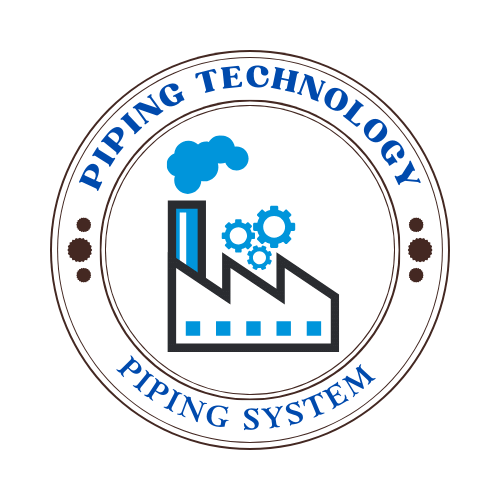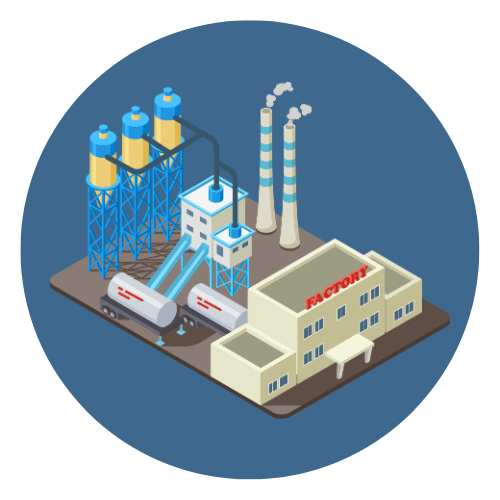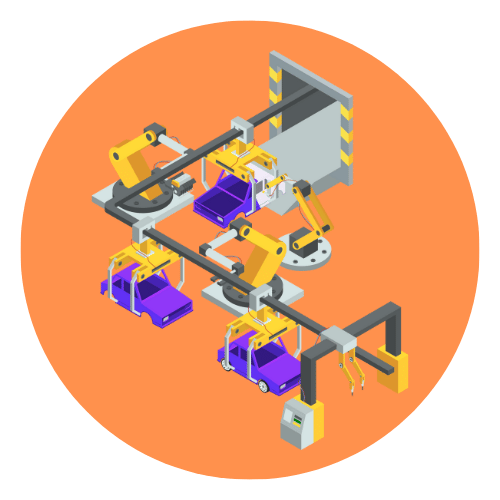Mechanical Engineeing
Mechanical Engineering is one of the oldest and broadest engineering disciplines. It involves the design, analysis, manufacturing, and maintenance of mechanical systems. Mechanical engineers use principles of physics, mathematics, and material science to create and optimize machines, devices, and systems that are fundamental to modern society.

1. What is Mechanical Engineering?
- Definition: Mechanical Engineering is the branch of engineering that focuses on the design, production, and operation of machinery. It encompasses a wide range of activities, from designing small parts like sensors and valves to developing large systems such as engines and HVAC systems.
- Scope: This field covers areas such as energy conversion, materials science, thermodynamics, fluid mechanics, robotics, and manufacturing.
2. Key Areas of Focus:
- Design and Manufacturing:
- Product Design: Creating and developing new products, from initial concepts to final production, considering functionality, aesthetics, and cost.
- Computer-Aided Design (CAD): Using software tools to create detailed 3D models of parts and assemblies.
- Manufacturing Processes: Understanding and selecting appropriate processes for producing parts, including machining, casting, molding, and 3D printing.
- Material Selection: Choosing the right materials based on mechanical properties, durability, and cost for specific applications.
- Thermodynamics and Heat Transfer:
- Energy Systems: Designing systems that convert energy from one form to another, such as engines, turbines, and power plants.
- HVAC Systems: Heating, ventilation, and air conditioning systems that regulate the environmental conditions within buildings.
- Refrigeration: Engineering systems for cooling, from household refrigerators to industrial-scale systems.
- Heat Exchangers: Devices that transfer heat between two or more fluids, essential in industries like power generation and chemical processing.
- Fluid Mechanics:
- Hydraulics: Systems that use fluids under pressure to transmit power, such as in construction machinery and aircraft.
- Pneumatics: Similar to hydraulics but using compressed air or other gases instead of liquids.
- Aero and Hydrodynamics: The study of how air and fluids flow over and around objects, crucial in the design of vehicles, aircraft, and turbines.
- Mechanics and Dynamics:
- Statics: The study of forces and their effects on objects at rest.
- Dynamics: Analyzing the motion of objects and the forces that cause them, including vibration analysis and kinematics.
- Mechanisms: Design and analysis of mechanical systems, such as gear trains, cams, and linkages, that transmit motion and force.
- Strength of Materials: Evaluating how materials deform and fail under various loads, crucial for ensuring safety and reliability in mechanical systems.
- Robotics and Automation:
- Robot Design: Creating robotic systems for various applications, from manufacturing to medical devices.
- Control Systems: Designing systems that control the behavior of machines, using sensors, actuators, and algorithms.
- Automation: Developing systems that perform tasks without human intervention, often used in manufacturing and processing industries.
- Mechatronics:
- Integration of Disciplines: Combining mechanical engineering with electronics, computer science, and control engineering to create intelligent systems.
- Applications: Includes the development of smart products like automotive systems, robotic arms, and automated assembly lines.
3. Career Opportunities in Mechanical Engineering:
- Automotive Engineer: Designing and developing vehicles and their subsystems, focusing on performance, safety, and efficiency.
- Aerospace Engineer: Working on the design and analysis of aircraft, spacecraft, and missile systems.
- Manufacturing Engineer: Optimizing manufacturing processes, improving efficiency, and ensuring quality control.
- HVAC Engineer: Specializing in heating, ventilation, and air conditioning systems for residential, commercial, and industrial buildings.
- Robotics Engineer: Developing robots and automated systems for various industries, including manufacturing, healthcare, and defense.
- Energy Engineer: Focusing on energy production and conversion systems, such as turbines, engines, and renewable energy technologies.
4. Challenges in Mechanical Engineering:
- Sustainability: Developing energy-efficient systems and reducing the environmental impact of manufacturing and product lifecycle.
- Innovation: Keeping up with rapidly advancing technologies, such as additive manufacturing and AI, and integrating them into mechanical engineering practices.
- Global Competition: Competing in a global market requires continuous improvement in product design, quality, and cost-efficiency.
- Complex Systems: Managing and optimizing increasingly complex systems, from modern vehicles to automated manufacturing plants.
5. Emerging Trends in Mechanical Engineering:
- 3D Printing (Additive Manufacturing): Revolutionizing the way products are designed and manufactured, allowing for more complex geometries and rapid prototyping.
- Sustainable Design: Emphasizing eco-friendly materials and energy-efficient designs to reduce environmental impact.
- Digital Twin Technology: Creating digital replicas of physical systems to simulate performance, optimize design, and predict maintenance needs.
- Advanced Materials: Developing new materials with enhanced properties, such as composites and smart materials, for use in high-performance applications.
- AI and Machine Learning: Integrating AI into mechanical systems for predictive maintenance, process optimization, and autonomous operation.
6. Education and Skills Required:
- Educational Path: A bachelor’s degree in mechanical engineering or a related field is typically required. Advanced degrees may be needed for specialized roles or research positions.
- Key Skills:
- Analytical Thinking: Ability to solve complex problems using mathematical and engineering principles.
- Technical Proficiency: Knowledge of CAD software, finite element analysis (FEA), and other engineering tools.
- Creativity: Innovative thinking to design new products and improve existing ones.
- Project Management: Managing projects from concept to completion, including budgeting, scheduling, and teamwork.
- Communication: Effectively conveying technical information to both technical and non-technical audiences.
7. Future of Mechanical Engineering:
- Interdisciplinary Collaboration: Increased collaboration with other fields like electronics, computer science, and materials science to develop more advanced and integrated systems.
- Focus on Automation and Robotics: As industries move towards greater automation, mechanical engineers will play a key role in designing and maintaining these systems.
- Global Sustainability: Mechanical engineers will continue to be at the forefront of developing sustainable technologies that reduce waste, improve energy efficiency, and minimize environmental impact.
Mechanical Engineering is a versatile and ever-evolving field that plays a crucial role in the advancement of technology and industry. By combining technical expertise with innovative thinking, mechanical engineers create the systems and products that drive modern life, from transportation and energy to manufacturing and healthcare.
Mechanical Engineering Benefit
Mechanical Engineering offers numerous benefits both to individuals who pursue it as a career and to society as a whole. Here are some key benefits:
1. Broad Career Opportunities:
- Versatility: Mechanical engineering is one of the broadest engineering disciplines, covering a wide range of industries such as automotive, aerospace, energy, manufacturing, robotics, and healthcare. This versatility provides mechanical engineers with diverse career options.
- Job Stability: Given the essential nature of mechanical engineering in various industries, professionals in this field often enjoy strong job stability and demand, even in changing economic climates.
2. High Earning Potential:
- Competitive Salaries: Mechanical engineers typically earn competitive salaries, reflecting the high level of expertise required for the role. Specialized roles or positions in high-demand industries can offer even higher earning potential.
- Opportunities for Advancement: With experience and further education, mechanical engineers can advance to managerial or specialized technical roles, which often come with increased compensation.
3. Contribution to Society:
- Innovation and Problem-Solving: Mechanical engineers are at the forefront of innovation, designing and developing new technologies and systems that improve quality of life. Their work in areas like renewable energy, medical devices, and transportation has a direct and positive impact on society.
- Sustainability: Mechanical engineers contribute to environmental sustainability by developing energy-efficient systems, sustainable manufacturing processes, and renewable energy technologies.
4. Skill Development:
- Technical Expertise: Mechanical engineers develop a strong foundation in critical areas such as thermodynamics, fluid mechanics, materials science, and computer-aided design (CAD), making them highly skilled technical professionals.
- Analytical and Problem-Solving Skills: The nature of mechanical engineering work requires strong analytical skills and the ability to solve complex problems, which are valuable in many professional contexts.
- Project Management: Mechanical engineers often manage projects, honing skills in planning, budgeting, scheduling, and leadership, which are transferable to other roles and industries.
5. Impactful Work:
- Real-World Applications: Mechanical engineers see the tangible results of their work in real-world applications, from the vehicles we drive to the machinery that powers industries. This can be highly rewarding for individuals who want to see the direct impact of their contributions.
- Global Influence: Mechanical engineering projects often have a global reach, influencing not just local communities but entire industries worldwide, especially in areas like transportation, energy, and manufacturing.
6. Continuous Learning and Innovation:
- Lifelong Learning: The field of mechanical engineering is constantly evolving with advancements in technology, materials, and processes. This continuous development provides opportunities for lifelong learning and keeping up with the latest innovations.
- Cross-Disciplinary Opportunities: Mechanical engineers often work on projects that intersect with other disciplines, such as electrical engineering, materials science, and computer science. This cross-disciplinary work can lead to further learning and professional growth.
7. Global Demand:
- International Opportunities: Mechanical engineers are in demand globally, offering opportunities to work in different countries and cultures. The skills and knowledge gained in mechanical engineering are often transferable across borders.
- Contribution to Global Challenges: Mechanical engineers play a critical role in addressing global challenges such as climate change, energy sustainability, and healthcare access, making their work globally relevant and impactful.
8. Innovation in Emerging Fields:
- Robotics and Automation: Mechanical engineers are leading the way in the development of robotics and automation systems, which are transforming industries and creating new opportunities in manufacturing, healthcare, and more.
- Advanced Materials and Manufacturing: The development of new materials and manufacturing processes, including 3D printing and nanotechnology, is opening up new possibilities for innovation in mechanical engineering.
9. Interdisciplinary Collaboration:
- Teamwork and Collaboration: Mechanical engineers often work in multidisciplinary teams, collaborating with professionals from various fields such as electrical engineering, computer science, and business. This collaborative environment fosters creativity and innovation.
- Leadership Roles: With experience, mechanical engineers can move into leadership roles, overseeing projects and guiding teams, which enhances their professional development and influence.
10. Personal Fulfillment:
- Creative Problem-Solving: For those who enjoy solving complex problems and designing innovative solutions, mechanical engineering offers a fulfilling and intellectually stimulating career.
- Sense of Accomplishment: The ability to contribute to significant projects and see the direct impact of one’s work provides a strong sense of accomplishment and pride.
Mechanical Engineering is a field that not only offers substantial personal and professional benefits but also plays a crucial role in advancing technology and improving the quality of life worldwide. It’s a rewarding career choice for those interested in making a tangible impact through innovation and engineering excellence.


 Automation System
Automation System  Energy Engineeing
Energy Engineeing  Instrumentation System
Instrumentation System  Mechanical Engineeing
Mechanical Engineeing  Piping Technologies
Piping Technologies  Transportations
Transportations  Manufacturing
Manufacturing  Training Material
Training Material 
















































